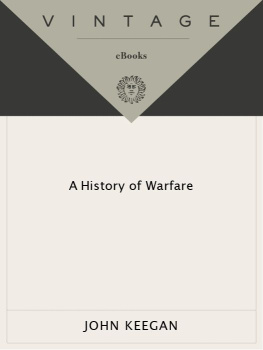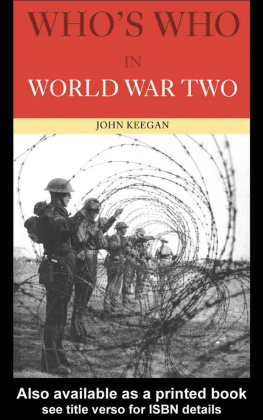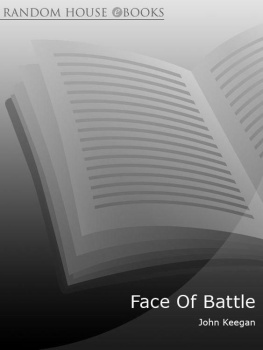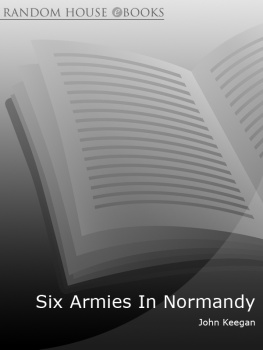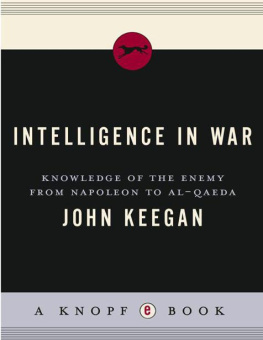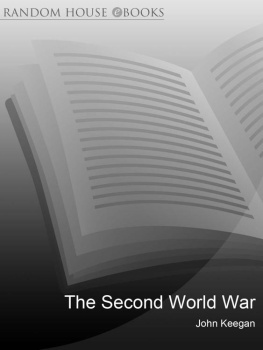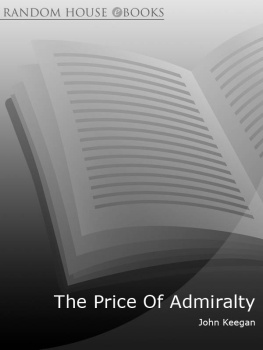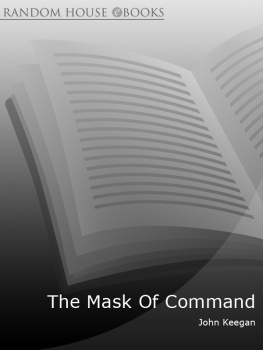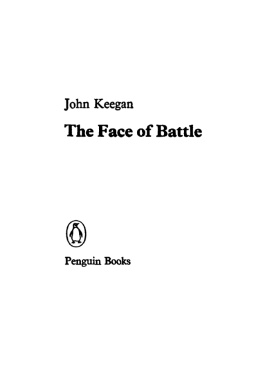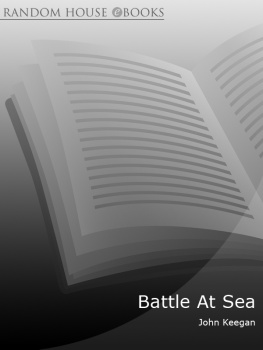John Keegan - The Battle For History: Re-fighting World War II
Here you can read online John Keegan - The Battle For History: Re-fighting World War II full text of the book (entire story) in english for free. Download pdf and epub, get meaning, cover and reviews about this ebook. year: 1996, publisher: Vintage, genre: History. Description of the work, (preface) as well as reviews are available. Best literature library LitArk.com created for fans of good reading and offers a wide selection of genres:
Romance novel
Science fiction
Adventure
Detective
Science
History
Home and family
Prose
Art
Politics
Computer
Non-fiction
Religion
Business
Children
Humor
Choose a favorite category and find really read worthwhile books. Enjoy immersion in the world of imagination, feel the emotions of the characters or learn something new for yourself, make an fascinating discovery.

- Book:The Battle For History: Re-fighting World War II
- Author:
- Publisher:Vintage
- Genre:
- Year:1996
- Rating:4 / 5
- Favourites:Add to favourites
- Your mark:
- 80
- 1
- 2
- 3
- 4
- 5
The Battle For History: Re-fighting World War II: summary, description and annotation
We offer to read an annotation, description, summary or preface (depends on what the author of the book "The Battle For History: Re-fighting World War II" wrote himself). If you haven't found the necessary information about the book — write in the comments, we will try to find it.
The Battle For History: Re-fighting World War II — read online for free the complete book (whole text) full work
Below is the text of the book, divided by pages. System saving the place of the last page read, allows you to conveniently read the book "The Battle For History: Re-fighting World War II" online for free, without having to search again every time where you left off. Put a bookmark, and you can go to the page where you finished reading at any time.
Font size:
Interval:
Bookmark:
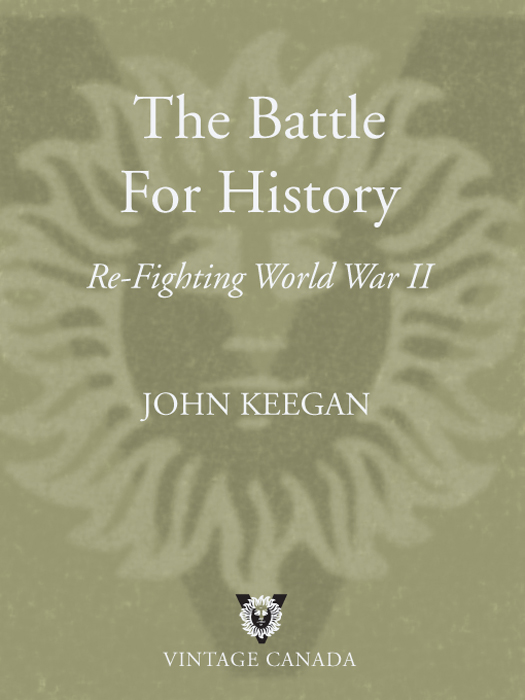
John Keegan was for many years senior lecturer in military history at the Royal Military Academy, Sandhurst, and has been a fellow at Princeton University and a professor of history at Vassar College. He is author of thirteen previous books, including the acclaimed The Face of Battle and The Second World War. He lives in Wiltshire, England.
A History of Warfare
The Face of Battle
The Nature of War
(WITH JOSEPH DARRACOTT)
World Armies
Whos Who in Military History
(WITH ANDREW WHEATCROFT)
Six Armies in Normandy
Soldiers
(WITH RICHARD HOLMES)
The Mask of Command
The Price of Admiralty
The Second World War
Fields of Battle
War and Our World:
The Reith Lectures 1998
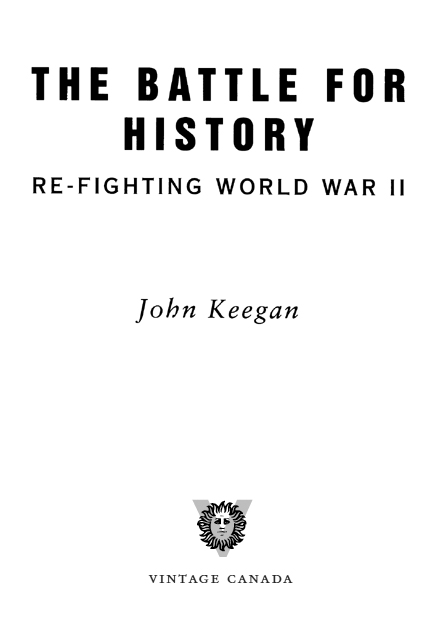
VINTAGE CANADA ELECTRONIC EDITION, 2014
Copyright 1995 John Keegan
All rights reserved under International and Pan-American Copyright Conventions. No part of this book may be reproduced in any form or by any electronic or mechanical means, including information storage and retrieval systems, without permission in writing from the publisher, except by a reviewer, who may quote brief passages in a review.
Originally published in Canada by Vintage Canada, a division of Random House of Canada Limited, Toronto, in 1995, and in the United States of America by Vintage, a division of Random House LLC, New York, in 1996. Distributed by Random House of Canada Limited, Toronto.
Vintage Canada with colophon is a registered trademark.
www.randomhouse.ca
Library and Archives Canada Cataloguing-in-Publication data has been applied for.
Keegan, John.
The battle for history [electronic resource] : re-fighting World War Two / John Keegan
e-ISBN 978-0-307-36722-8
v3.1
Controversy and the Second World War
Histories of the Second World War
Biographies
Campaigns
The Brains and Sinews of War
Occupation and Resistance
SECOND WORLD WAR
I T WAS A WONDERFUL WAR , wrote A.J.P. Taylor. What war can ever be wonderful, least of all one that killed fifty million people, destroyed swathes of Europes cultural heritage, devastated its economy, depraved its politics, devalued the very moral basis of its civilization? That, nevertheless, was Taylors written verdict on the war. He was prepared to repeat his opinion in speech. What did you feel about the war while it was going on? I once asked the great historian. Wonderful, he said. Wonderful.
Taylor was a notorious controversialist. He hated Hitler, but refused to visit the United States, though its aroused an almost unanimous denunciation by his peers, he modified his views not at all, reissued it, and added an introduction which reinforced his original argument.
What are the great controversies that surround the war? Some concern its origins, some its conduct, some its personalities, some its mysteries, some its byroads so remote from its central thrust that only specialists regard them as controversial at all. Some controversies are entirely bogus, like David Irvings contention that Hitlers subordinates kept from him the facts of the Final Solution, the extermination of the Jews, or James Bacques crackpot assertion that Eisenhower was responsible for the deaths of a million prisoners of war once the war was over. Irving continues to offer a monetary award to anyone who can produce a document authorizing the Final Solution to which Hitlers signature is appended. Bacque, since the publication of the papers of a scholarly conference exploding for good and all the substance of his delusion, has sensibly kept silent.
There may never be a decisive rejoinder to the Taylor thesis that the war came about by accident. His argument, essentially, is that Hitler had won so much advantage by playing on the weakness, irresolution, and disunity of his opponents over rearmament, the reoccupation of the Rhineland, the annexation of Austria, the dismemberment of Czechoslovakia that he blinded himself in August 1939 to the possibility of their having a sticking-point. In a progression of diplomatic triumphs, culminating in the Molotov-Ribbentrop Pact, which aborted the chance of squeezing Germany between the military power of Britain, France, and Russia, Hitler may well have seen his aggression against Poland as something that London and Paris would swallow also. To argue otherwise is to claim powers of mind-reading not normally given to humans, let alone historians. We simply do not know how Hitler counted the cards in his hand. We do, however, know what sort of game he was playing. Mein Kampf is a significant book; Hitlers speeches to the German people before and after the seizure of power are significant also, in the way that the eighteenth-century German philosopher Johann Fichtes Speeches to theGerman Nation is significant. That famous appeal called the Germans to nationhood before there was ever a German state. Hitlers speeches called the Germans to a new nationhood after the humiliation of defeat, occupation, and what was intended to be permanent disarmament. For Hitler, the First World War had been the supreme experience. The defeat of his country devalued the contribution his generation had made, and the sacrifice their parents had made in offering their offspring to the holocaust of the trenches, and so demanded that the outcome be put to a second test. Revenge does not quite summarize Hitlers emotions over the war, though revenge was a powerful ingredient; readjudication better describes what he wanted, even at the cost of more German deaths to the deaths of non-Germans he was, of course, perfectly indifferent. He was determined that Germany should have a victory to expunge Versailles, thought he could get it by browbeating and outwitting those who had dictated the Versailles terms, and persisted in that course as far as invading, on September 1, 1939, the former German territory which Versailles had transferred to the despised Polish state. He expected Poland to fight, on that no one disagrees. What Taylor argues is that Hitler did not expect Britain and France to make good their guarantees to Poland. What almost everyone says is that Hitler did not care.
We are dealing with states of mind. Taylors opponents hold that Hitlers state of mind violent, vindictive, vengeful drove German policy to a preordained war in September 1939. Taylor went to his grave insisting that states of mind are irrelevant in dissecting historical causes. Since state of mind defined everything Taylor did and wrote, which is what made him the pyrotechnician he was, his verdict on the Second World War may be judged his greatest perversity.
There is the making of another controversy afoot about the chief consequence of Hitlers aggression in 1939, the collapse of the Western powers in 1940. For nearly fifty years, the British have taken its outcome for granted: Dunkirk, Churchills defiant speeches, the Blitz, victory in the Battle of Britain. These were the makings of the national epic, standing alone, which led eventually to the Grand Alliance and Hitlers overthrow five years later. It has been a major source of national pride for two generations. Now a new generation of historians is beginning to advance the heretical idea that Britains correct strategy after the fall of France might have been to make peace. Peace was certainly on offer: Hitler was prepared to leave Britain its fleet in return for a free hand on the European continent. The argument has so far had an easy ride. Already, however, there are the rumblings of riposte. Survivors of the Battle of Britain point out that the young simply cannot grasp how British Britain was in 1940, how suffused by the sense of British greatness, how contemptuous of foreign mountebanks, how rooted in empire, how certain still that it was the centre of the world. Realists state another case: that any accommodation with Hitler could have been only temporary, that he would have reneged on any deal as soon as he had exploited its advantages, and that the realists of that age, of whom Churchill was one, saw that quite clearly. This is not a controversy that promises to thrive.
Font size:
Interval:
Bookmark:
Similar books «The Battle For History: Re-fighting World War II»
Look at similar books to The Battle For History: Re-fighting World War II. We have selected literature similar in name and meaning in the hope of providing readers with more options to find new, interesting, not yet read works.
Discussion, reviews of the book The Battle For History: Re-fighting World War II and just readers' own opinions. Leave your comments, write what you think about the work, its meaning or the main characters. Specify what exactly you liked and what you didn't like, and why you think so.

